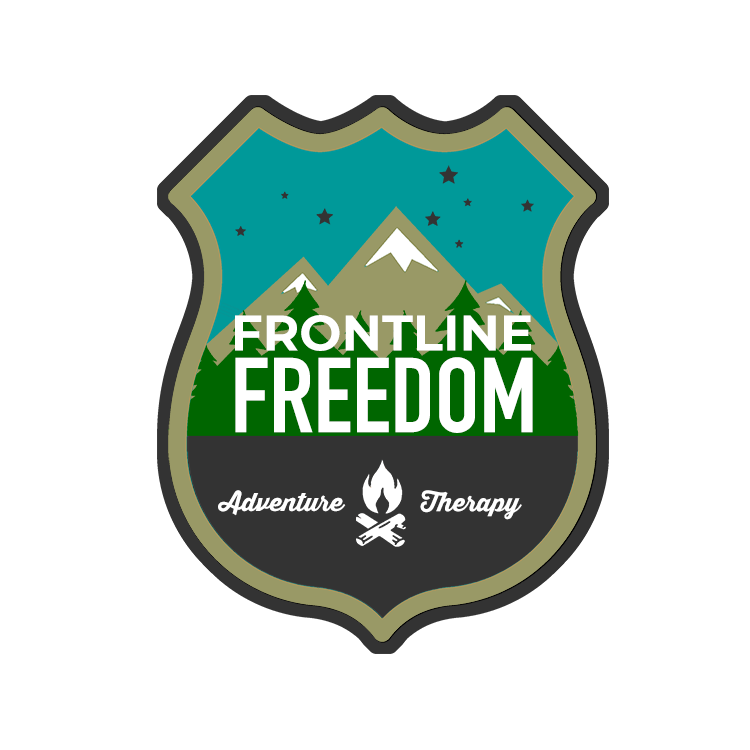Articles

How Sleep Impacts Anxiety
Most people know that getting a good night’s sleep is essential, but many don’t realize how closely linked sleep and anxiety are. In fact, there is a strong correlation between the amount of sleep you get and the severity of your anxiety symptoms.
The reason why is because your body releases serotonin while you sleep. Serotonin is the neurochemical in the brain that regulates anxiety levels, so when you get enough hours of quality sleep, your serotonin levels are higher than if you do not get enough sleep.
On the other hand, if your serotonin levels are low, it will be challenging to stop anxiety. There are exceptions, of course, but this is typically the case. So while it may seem difficult to believe that something as simple as getting enough sleep can have an impact on your anxiety levels, it’s actually very accurate. Getting at least 6 hours of high-quality sleep each night can help to decrease your anxiety.
But it’s not as simple as that. To fully understand how to best use sleep to your advantage, you need to know the different types of sleep and what they do for you.
Sleep Cycles: Your brain goes through different sleep cycles throughout the night. Each cycle is about 90 minutes long, and each one brings you closer to being asleep.
Non-REM is a very deep, dreamless state that most people experience only a few times each night. It plays an important role in helping your body recover from stress and build new cells, including those responsible for learning and memory. The non–REM cycle is where you have deeper and slower brain waves and decreased blood flow to the brain. On average, this type of sleep comprises about 75% of total sleep time.
REM – is a stage of sleep during which your eyes move rapidly, and you have dreams. When you experience your typical four or five REM cycles per night, each typically lasts from 10 to 30 minutes.
The amount of time spent in different stages of sleep can vary from night to night for any individual. However, suppose one consistently spends less than about an hour in slow-wave sleep. In that case, they are probably not getting enough restorative rest with their current sleeping schedule. For this type of essential recovery to take place, it is important to allocate at least six hours for a regular sleep period and allow the body sufficient time for going through all four stages before waking up.
Some healthy sleep habits you can use to ensure you are getting the best sleep are:
– Avoid caffeine at least six hours before your regular bedtime.
– Exercise during the day instead of just before you go to bed. The rise and fall of body temperature from exercise can interfere with sleep quality.
– Limit your alcohol intake as it leads to fragmented sleep and frequent awakenings throughout the night.
– Avoid checking your phone or watching TV in bed as these activities can interfere with sleep quality.
– Find a sleeping pattern that is best for you and stick with it (fall asleep around the same time every night).
Habits like these can help your body create an internal “sleep clock” that is more in tune with when you need to sleep. On average, adults should try to get at least six hours of uninterrupted sleep each night; however, an average of seven to nine hours is recommended for anyone who is trying to recover from anxiety.
Suppose your anxiety symptoms occur during the day. In that case, it can increase nighttime stress levels and interfere with your ability to fall asleep. The less you can rest properly, the harder it will be to function during the day and overcome your anxiety.
Suppose you are struggling to get good quality sleep. In that case, it may increase your anxiety, which can lead to further insomnia, creating a vicious cycle. Remember, some people with anxiety can struggle to fall asleep as a result of elevated stress levels.
This makes it important to try to discover what is keeping you up at night so you can begin dealing with the root cause instead of allowing your anxiety to escalate further.
Suppose you have trouble falling asleep or become dependent on sleep aids. In that case, it may be time to chat with a therapist about whether an alternative strategy would work better for you.
Having difficulties sleeping can be frustrating if you are trying to heal from anxiety. Think of restful sleep as your number one ally in the fight against your panic disorder. It will not only help to decrease overall anxiety, but it is also crucial for long-term health and wellness. By maintaining good sleeping habits and getting proper sleep regularly, you will experience a more restful and productive day.
If you’re having trouble sleeping, don’t despair. Healthy sleep habits and a regular routine can help your body establish an internal “sleep clock” that’s better in tune with when it needs to be resting. Habits like these will lead to more restful nights and promote higher levels of productivity during the day for those who have difficulty managing their anxiety symptoms, which may occur during daylight hours due to elevated stress levels.
I suggest tracking your sleep with a good old-fashioned pen and paper or using a smartwatch. You can help uncover patterns in your sleep patterns and get yourself on the path to correcting your sleep hygiene.
Like anything, consistency is key. Healthy sleep habits are dependent upon a routine. Apple iPhones have a bedtime reminder (what I personally use). Each time it goes off, I stop what I’m doing, brush my teeth, and go to bed. Starting this routine has helped me decrease the number of weird dreams I have (you know, the one all cops have about trying to pull a trigger and can’t). Additionally, I feel more restorative when I get up.
The other thing I do is keep my alarm set for the same time each and every day. Even on weekends, I’m up by 0530. After a couple of months, I really don’t need an alarm anymore.
Sleeping well is crucial for anyone who wants to overcome their anxiety. It’s important to stick to a regular sleep schedule, avoid caffeine and alcohol before bed, and get up at the same time each day. Suppose you’re struggling with insomnia or have become dependent on sleep aids. In that case, it may be time to chat with a therapist about whether an alternative strategy would work better for you. By establishing good sleeping habits, you can help your body regulate its own “sleep clock” and get the most out of your restful nights.

Maintaining Friendships
Maintaining friendships is an important part of a healthy lifestyle. Friends provide social support and can help us through difficult times. However, it can be challenging to find the time to keep in touch with our friends, especially if we are busy with work or other commitments. That’s why scheduling time on your calendar specifically for contacting friends is a great way to ensure that you don’t lose those valuable relationships!
Research into human relationships shows the importance of friendships. In the everyday hustle of our lives, we become a follower to what is on our calendars. If we want to stay connected with our friends, we must schedule a time to talk and catch up. Even a 30-minute phone call with a friend can have huge, lasting impacts on our mental health.
When we make time to talk with friends, it strengthens our relationships. Research has shown that people who speak on the phone more than once a week are less likely to experience depression and loneliness. This is because talking with friends releases oxytocin. Oxytocin makes us feel good, and it helps to reduce stress levels.
Additionally, unlocking time off on your calendar allows you to have more control over what you do in your day. When you know you have the appointment time blocked out, you are less likely to schedule other activities or meetings in its place. This way, you can make the most of your time with friends and not feel guilty about taking some time for yourself.
One of the reasons people tend not to schedule open blocks of time out on their schedule is the phenomenon of negative forecasting bias. This is the idea that we tend to think negatively about the future, and so don’t bother making plans because we assume they won’t happen. Or, we dread not having an open space in the future.
For the police world, the best example of negative forecasting bias is when we dread going to or attending a training event. We think, “I don’t want to go. It’s going to be terrible.” It could be as simple as in-service training, which is nothing more than annual updates and maybe firearms qualifications. By all means, it is typically an easy day.
Yet, despite this, we dread going. We see it on the calendar and immediately get anxiety over attending. Once we attend the training, we think to ourselves, “that wasn’t so bad.” However, when it rolls around again next year, we are back to dreading it.
Negative forecasting bias can also prevent us from taking time for ourselves. We might think, “I don’t want to block out any time on my calendar because something might come up.” But by doing this, we are more likely to have something come up. Having time blocked out for you on your calendar gives you a sense of ownership over that time and shows that it is crucial.
When it comes to our relationships, we should be proactive and schedule a time to catch up with friends. This will help us maintain those valuable relationships and reduce stress levels. Plus, it just feels good to talk with friends.
In a chaotic world, it is easy to feel lost. Control what you can; schedule a time to call a friend. It’s not intrusive and can easily be accomplished. By taking some control over our lives and improving interpersonal relationships, we are preventing mental anguish for ourselves in the future.
Taking control of your life can help improve your relationships with other people. If we are busy or overworked, the best way to maintain relationships with friends and family is by scheduling time on our calendars specifically for them. This helps us avoid the pitfalls of negative forecasting bias and not having any open blocks of time in the future. This can lead to reduced stress levels and a better overall feeling.

How to create a conscious mindset
Most people operate on autopilot most of the time. They go through the motions of their day, doing what they’re supposed to do and not thinking about it too much. This is especially true when it comes to working. We all know that if we just do what we’re told and don’t think too hard about it, things will go more smoothly.
But this mindless approach can also lead to stagnation and boredom. If you never challenge yourself and push your boundaries, you’ll never grow as an individual. You need to be willing to experiment with new ideas and ways of thinking, even if they make you uncomfortable. By having a conscious mindset, you can take control of your own development and genuinely start to live the life you want.
To have a conscious mindset, you need to know your mindset. You need to be aware of the thoughts and ideas going through your head daily. This awareness can open up a whole new world of possibilities for yourself. The more conscious you are, the more you’ll realize how much control you have over yourself and the situations you are presented with.
What is the conscious mindset?
So what does it mean to have a conscious mindset? It involves actively examining situations that seem familiar, recognizing patterns of thought and behavior that might be holding you back, and making a conscious effort to change things. In essence, it’s all about choosing how you respond to stimuli – both physical and mental – that come into your life.
Part of having a conscious mindset is also recognizing when you’re not acting consciously. Most of us tend to revert to autopilot mode after a long day at work or school. If your mind tends to wander to other things when you’re supposed to be focused on the task at hand, this is a sign that you need to make an effort to stay in the moment.
What are the benefits of having a conscious mindset?
Being conscious also entails being aware of your own thoughts and feelings. If you find yourself thinking negative thoughts about a person or situation repeatedly, stop yourself. See the thought, and choose to let it go. This frees up mental space for more empowering thoughts.
Being conscious can help you connect with other people on a deeper level. Let’s spend time focusing on ourselves and what is happening inside of us every day. We become more attuned to our own feelings, desires, and needs. When we understand ourselves, we become more accepting of the people around us. We can then speak from a place of empathy and understanding rather than reacting from a place of fear or anger.
Having a conscious mindset can help you achieve your goals faster. When you have clear intentions for what you want in life, it becomes much easier to stop wasting time and energy on the things you don’t want. You become more driven toward your goals and end up taking better care of yourself because you’re living a life that is right for you.
How can you adopt a more conscious mindset in your own life? Consider these three steps.
The conscious mindset is how you look at your own personal situation. It includes understanding how your belief system has been created and then deciding what should change to create a more positive atmosphere for yourself. The first step toward changing your life begins with examining who you are right now. Once you do that, you can move forward and create a future that works better for your needs.
First, understand why you think the way you do right now. You should consider what has shaped these thoughts. No one just wakes up in the morning and decides that they would like to be unhappy or unfulfilled in their lives; instead, deep-rooted beliefs have built up over a long period, and those experiences create the basis for how you see your world.
Second, decide what you should change about that mindset to help yourself feel better. You may find that some changes could be made in how you think or behave right now, especially if any of your current beliefs are not helpful to you. There may be old ideas from your childhood that still influence how you make choices today, and those should be considered something worth changing.
Third, come up with a plan for putting those new changes into place. Deciding to make a few adjustments will not help if you don’t create a specific action plan to back up that intention. You should detail exactly what you need to do and in what order so that it becomes easier for you to visualize your desired outcome.
You can also employ other tactics while trying to achieve this mindset change, such as taking time out of each day to sit quietly and think about what you have done so far or what you would like to change about your current daily routine. You could also maintain a journal where you write down any personal insights that come to light during this time of introspection.
The conscious mindset is not always easy to achieve. Still, it can be accomplished relatively quickly and easily with some effort and regular practice.
What challenges do you face when trying to live more consciously??
The biggest challenge is getting out of autopilot. We all have automatic responses, some helpful and others unhelpful. When we go on autopilot, we tend to default to our less useful patterns and stories because they’re what we’re used to. Often we don’t even realize this is happening, mainly if it’s a pattern we live by for many years. To be more conscious, I need to notice when I’m on autopilot to get back into my conscious mindset.
How can you overcome these challenges?
When we start to practice noticing when we’re on autopilot and becoming more aware of our patterns, we gradually begin to see them in action all the time. It’s then that we have a chance to start consciously challenging these patterns instead of following them blindly, or worse still – without knowing what is going on. The best way to do this is with the help of mindfulness practices such as meditation and everyday mindfulness.
The most effective way for me is to take one small step at a time. It doesn’t work if I try to do too much or too drastically because my brain goes into panic mode and stops thinking clearly. One step at a time helps the brain relax. Always aim high but start small!
How to stay mindful/conscious?
My favorite way to stay conscious is by setting intentions for the day. My second tip would be to practice mindfulness throughout the day, which can be as simple as taking one deep breath, noticing a flower out of the corner of your eye, or hearing the wind in the trees. If you do this throughout the day, you’ll find your mind starts to relax, and it becomes easier to come back to this mindset.
How does living more consciously improve our life?
Living more consciously is about being aware of how we affect others and the planet on a moment-to-moment basis. By practicing mindfulness we can begin to live with
Conclusion
The conscious mindset is the most important mindset for success. It’s the only way to be in control of your life and make yourself better. You can’t let others do it for you or wait around for them to change their minds about you because they won’t. The key is to focus on how you want things to be instead of how they are right now, which will give you a sense of power over your situation. Your thoughts create reality, so if all you think about is what isn’t working, then that’s what will keep happening. If this sounds like too much work, consider taking up an instrument. Learning anything new activates the conscious mind and makes it stronger!

What the Police Aren’t Telling Us About PTSD
Every day, police officers are put in dangerous situations that can have a lasting impact on their mental health.
Yet, many officers don’t feel comfortable seeking help for fear of being seen as weak or unfit for duty.
This leaves many officers struggling with PTSD without any support.
PTSD and Police Officers
A study of police officers in the U.S found that:
– 1/3 of police officers have had thoughts about killing themselves at some point in their life. They were twice as likely to think about or attempt suicide compared with the general population. The risk of suicide is highest among younger officers, those with high caseloads, and those who leave firearms in an accessible place.
– 70% of police officers say they know a colleague who has experienced symptoms of PTSD or major depression during or after service. Yet only 14% report ever having received any mental health training from a supervisor during their career. 90% feel it’s essential for supervisors to provide such training.
– Despite problems like PTSD and depression, only 1/3 of officers feel that mental health is taken seriously by the department they work for. Feeling valued at work is a strong predictor of positive mental health.
Officers who experience symptoms of PTSD don’t ask for help due to:
- Fear it would harm their career
- A concern that going to therapy would reflect poorly on them
- Fear that they would be considered weak or unfit for duty
- The opinion that you don’t get sick from stress, anxiety, and trauma in police work.
Some symptoms of PTSD include insomnia, anger, depression, loss of interest in things they usually enjoy, isolation from family and friends. In worst-case scenarios, they can develop addictions to alcohol or drugs, which lead to further problems. About 11% of Americans experience symptoms of PTSD at some point in their life. This is about 1/3 the number of officers who have symptoms at any given time!
What Can We Do?
1) Police Culture Must Change. Police officers need to be taught that PTSD and depression are common problems affecting anyone who experiences trauma, including police officers. If officers feel they cannot seek help for fear of being seen as weak or unfit, police departments must bring about a culture change.
2) Supervisors Need Training. The first step is training supervisors on recognizing the signs of PTSD in their subordinates. Signs include anger issues, mood swings, withdrawal from social situations, insomnia, isolation from friends and family – these are all symptoms of PTSD! Training supervisors will allow for early intervention, which hopefully means less severe symptoms later.
3) Support Networks Are Essential. If officers know they have support within the department, it decreases their chance of feeling isolated and alone. Support networks can be created in a variety of ways; peer support, training on the signs of PTSD and depression, ensuring access to mental health professionals (without letting an officer’s feelings about seeking help affect their career), and encouraging officers to attend therapy even if they aren’t “officially ordered” to do so.
4) Police Departments Can Make Their Own Plans. We cannot rely on legislation for this change to happen. It must come from within police departments themselves! Some ideas are: making the creation of early intervention programs department policy, creating programs aimed at reducing stress in officers’ lives, setting up systems where supervisors speak with subordinates regularly about changes in behavior or moods. Early intervention is key to preventing a significant mental health crisis in a department.
“If you want to change a culture, listen to the people in it.” – Seth Godin.

Are you living an enriching life?
Five life areas can lead to total happiness and well-being. Any improvement within the five results in happier you.
According to research, these are five fundamental categories or types of well-being. They are not “stand-alone” pursuits in themselves, but they are three things that can lead to greater fulfillment in life overall. For each category, I’ll include a question to help you determine if it’s something you need to focus on more in your life.
Relationships
Relationships are about the quality of time you spend with other people in your life, whether that’s a partner, spouse or family member, friend, colleague, or anyone else you enjoy spending time with. It doesn’t matter how long you have known them for either. The important thing is that you have people in your life that are good for you, care about you, and who you enjoy being around. If this isn’t something that comes easily to you, if there are many people in your life but no one really stands out as unique, then it might be time to start thinking about making some new friends or investing more time in your existing relationships. And suppose you don’t have as many people as you’d like in your life. In that case, it might be time to look at opportunities for meeting new people and expanding your social circle. Relationship questions:
Do I know the names of all my neighbors?
Do I have a best friend or group of close friends that I enjoy spending time with?
Do I have at least one person to whom I can say anything without fear of judgment or consequences?
Health and Fitness
If you keep up a healthy lifestyle and eat well, get enough sleep, and exercise regularly, then your physical well-being will improve. This means you will have more energy, be less prone to illness and generally feel better about yourself. If this isn’t something that comes naturally to you, or if it’s been a long time since you’ve looked after your health, then perhaps now is the time for some basic improvements. Start with small changes – eat healthier or start exercising – and build up from there. After all, Rome wasn’t built in a day. Health and fitness questions:
Do I exercise regularly?
Do I eat healthy foods most of the time?
If you answered no to those, then it might be time to take another look at your lifestyle and ask yourself if there’s anything you can do to make things even better.
Career and Finance
This is about how you feel about your job, as well as whether or not you earn enough money to meet all your needs and those of people close to you. If you like what you do for a living and feel confident in your abilities, then it’s likely you’ll be happy with your job. If this isn’t the case, if you would like to make a change or even start your own business, now might be the right time. And if you’re lacking in confidence and don’t feel as though your work is valued, then it’s time to focus on building skills and gaining experience that will allow you to take a more confident, proactive stance at work. Finally, if you’re unhappy with your financial situation and feel as though your job isn’t providing enough money to meet all your needs, it might be time for a change or even a new career. Career and financial questions:
Do I enjoy going to work every day?
How does my job make me feel about myself?
Do I earn enough money to cover all my needs and the needs of people close to me?
Is it time for a career change or at least some further education to boost earning power? If you answered no to any of these questions, then your attention should be focused on working towards positive changes in this area.
Self-Improvement
The final category is self-improvement. This is about doing the things that make you feel good, improve your life and help you grow as a person. It’s about finding fulfillment in what you do. If this isn’t something that comes naturally to you, if there are aspects of your character and personality that you’d like to change and develop, it might be time for a bit of personal development. And if you feel as though your life lacks meaning or purpose, perhaps the source of this problem is in how you choose to spend your time. Consider what positive changes would make a significant difference in your life and go from there. Self-improvement questions:
Do I make time for things that enrich my life?
What would be different if I spent more time doing what makes me happy and fulfilled?
If you answered no to the first question and are stumped on the second of those, then here are a few ideas to get you started. Identify one thing you could do every day that would add value to your life and take steps towards making that happen.
What are the most important things in my life?
Who do I spend time with?
Do those people bring out the best in me or tend to bring me down? If they don’t enrich your life, it’s probably time to either spend more time with people who inspire you or find strategies for dealing with the negative people in your life.
It’s time to take another look at your lifestyle and ask yourself if there is anything you can do to make things even better. Consider what positive changes would make a significant difference in your life and go from there. Whether it’s about career, finance, or self-improvement, the key is not making excuses for where you are but taking actionable steps towards improvement today.

How we become unhappy in our profession
The unhappiness we feel didn’t start overnight. It began long ago, back to when we were children. Long before any of us could have imagined where we are today…
Back then, it was the oppressive adults who held all the cards. And they laid them on the table for their kids, just one at a time. Rules, homework, chores. These are mine! That’s yours! You can’t have it until you are done! No, you can’t go out and play until you finish your work.
We wanted to call the shots. We tried to make the decisions. And then, we were thrust into the world of options. As soon as we are barely old enough to drive, we start making a long-range plan. Do we go to college? Do we join the workforce? If we decide to go to college, what for? What classes should I take? What career am I after? The list goes on.
Each time we make a decision, we force the decision of another. Our choices are interlinked with one another. If I choose to take the chemistry class, I must sacrifice music theory. And so our lives go. Boiling down to a series of choices. Each with its own unique consequences and sacrifices.
We hit a point in our lives where we start to question our choices. We come to the realization that there are trade-offs to each action. We had to sacrifice important things in our life to get to where we are today. Now, we begin to question whether our choices were the right decisions for ourselves. Think of it this way, have you ever described or thought of someone as “the one that got away.”? This is just one example of how your choices today can affect your entire life.
Is it possible to go back in time and change a decision that negatively affected your life? As humans, we become obsessed with looking back at our life choices and thinking of how different life would be if we went back in time. When we think about it, our ability to travel through time has been an ongoing theme in fiction books, movies, and various other forms of media.
That line of thinking directly impacts our current happiness. The older we get, the more difficult it is to let go of our past. It seems as though each year, the desire for time travel or having your younger self make better decisions grows even stronger. We begin to lose our youthful spirit and seek out any way possible to revert back to that state.
We question things because there is a finite number of choices anyone can make in a lifetime. The world is too big a place to do everything we are interested in doing. I can’t have a career and try to devote hours of practice to a piano to play in the world’s most renowned theatres.
I also can’t devote hours of practice to become an astronomer when I already have a full-time job. As we age, our interests change, and thus the decisions we make will change. We are in control of what decisions we make but not necessarily in control of how they will affect us in the long run.
Unfortunately, when we think of the decisions we could have made, we tend to think of the best-case scenario for the outcomes. For instance, if we think about the option we had in our youth to apply ourselves and become a doctor, we often imagine a fancy lifestyle that accompanies it. We don’t think about the hours of hard work to see patients each week. We don’t see continual research to keep our skills sharp.
In another example, we may think about how we should have stuck with photography. We imagine ourselves as National Geographic photographers, living life as an adventurer. We don’t see a lack of income if our pictures don’t sell. We don’t see the hours spent away from family. Most importantly, we forget that chasing that lifestyle negates all of our current family and friends.
We are trying to make that we humans don’t like to think about the bad parts of life. We only think of the good aspects and tend to gloss over all negative ones. This isn’t exactly helping us when we begin thinking about how our decisions could have been different.
As humans, we are biased towards thinking about our futures. This is why when we think about our past, we decide on what changes we should have made that impact our current and future lives. Philosopher Derek Parfit used a story about a time machine to help us mentally solve this dilemma.
He would tell people to imagine a machine that could take you back to the past. Whenever you wanted, for as long as you wanted, and with no cost or consequences. Would you use it? Most people would say yes because they tend to think of all the good things they could do.
However, if you think about it deeper, this isn’t a good idea. You would essentially live two lives with no guarantees that the second one would have a different outcome than the first.
Just because we had a bad day at work doesn’t mean that line of thinking can be applied to every other moment in our lives. If we let one wrong decision ruin the rest of our lives, then we have genuinely wasted our lives. This is why we should stop living in the past and move forward while looking at our decisions objectively. Unfortunately, I have seen too many people get fed up after a bad day at the office and altogether leave their profession. Now they spend all of their time reminiscing about the good times and what could have been had that one day never happened.
We need to accept that we will make bad decisions but also realize that we shouldn’t think about them constantly. It’s more essential for us to focus on what can be done in the present moment instead of incessantly thinking about all of the good decisions we could have made in the past.
